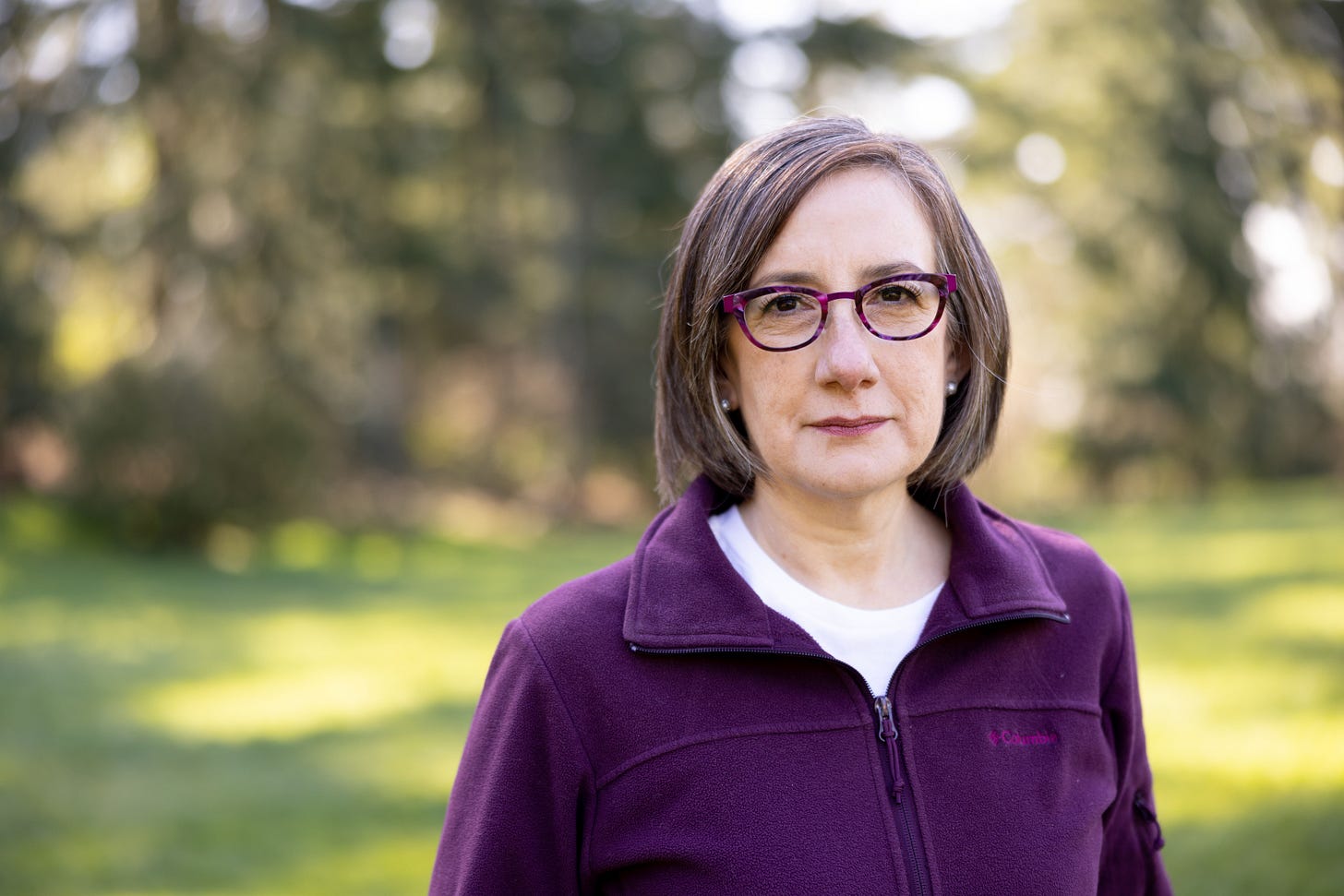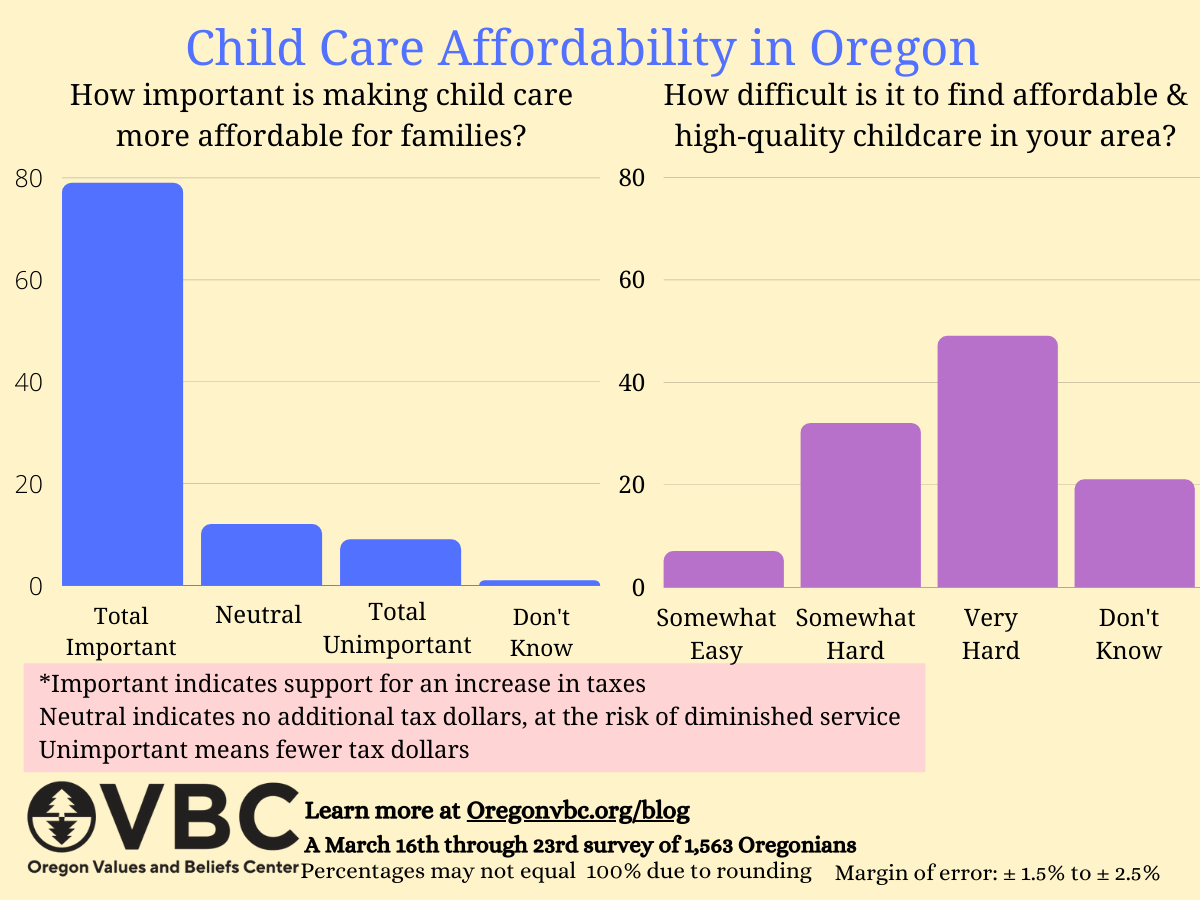The Liftoff: Drazan and Tiernan surging; Kotek and Read's closing arguments; Oregon post-Roe v. Wade
PLUS: Salinas builds momentum and Flynn under scrutiny; Horvick joins the pod; Portland politics and election reform news; Oregon's shrinking rental market, and more!
Welcome back to The Liftoff!
Please consider supporting this newsletter by becoming a paid subscriber today.
1. Drazan and Tiernan surging in GOP primary; Kotek and Read make their final arguments
GOP Primary
The latest gubernatorial poll shows a “new” frontrunner for the GOP nomination: Christine Drazan leads the field with about 19%, Bob Tiernan has jumped into second place with 14%, and Dr. Bud Pierce is about where he was a few months ago with 9.5%. The poll has a margin of error of 4.3 points. Political consultant Reagan Knopp makes a case for why these polls accurately reflect the surging campaigns of Drazan and Tiernan.
While Tiernan has surged in the polls, but he’s coming under intense scrutiny by the press and his opponents. He voted in only 3 of the last 17 elections and said in court that he spends 60% of his time in California.
Drazan, meanwhile, dropped out of the PDX City Club debate without offering a reason.
The good news for Bud Pierce: he won the Pamplin endorsement.
Democratic Primary
In Tobias Read’s final primary ad, he takes on Tina Kotek’s record as speaker.
In Tina Kotek’s latest ad, she touts her impressive list of endorsements. She was also endorsed by Pamplin on the Democratic side.
Read, Kotek, and two lesser-known Democratic candidates, Patrick Starnes and George Carrillo, met for a debate on KOIN.
2. Salinas builds momentum and Flynn remains under the spotlight
Rep. Andrea Salinas appears to be surging in the final days of the Democratic primary. According to a new poll in CD6, she is now the frontrunner with 18% of the vote to Carrick Flynn’s 14%. However, the margin of error is 4 points—so it’s neck-and-neck. Salinas also just received the endorsement of the Congressional Progressive Caucus.
The Oregonian has the latest fundraising numbers for all congressional candidates in Oregon.
Willamette Week published a flurry of pieces on Carrick Flynn, including:
A coalition of environmental groups have condemned Flynn’s comments on The Oregon Bridge. Listen to the comments yourself here.
A series of quotes about Flynn from Salem Mayor Chuck Bennett, former State Rep. Brian Clem, Sal Peralta, and BOLI candidate Casey Kulla, among others.
“How Oregon’s New Congressional District Could Become a Colony Ruled by a Distant Crypto Prince”
A contentious interview with Flynn that covers the independent expenditures and his earlier comments.
The story, from pre-redistricting to today, of the race for the 6th Congressional District.
Congressman Kurt Schrader has a lot going for him (President Joe Biden’s endorsement; the DCCC’s backing; a huge war chest)—but The O describes a “bipartisan effort…to oust” him.
3. Portland Politics & Election Reform News
An article in The O posits that Commissioner Dan Ryan is well positioned to be re-elected, as his main opponent, AJ McCreary, is nearly out of money and had her campaign manager quit last week.
Commissioner Jo Ann Hardesty released a statement implying that her two opponents, Vadim Mozyrsky and Rene Gonzalzez, are not pro-choice. She later retracted the claim—but it’s caused controversy. In other news, the Portland fire union passed on endorsing Hardesty (their boss). The union is declining to endorse anyone.
A new software system is gumming up Portland’s emergency response system, leading to “skyrocketing” 9-1-1 wait times.
Metro Councilors are part-time elected officials; two councilors’ employers receive money from Metro—and one challenger is crying foul.
From WW: We’ve seen the future and it looks like ranked choice voting.
A proposed ballot measure to overhaul Oregon’s redistricting process and re-draw the recently-passed maps from last year will not appear on the 2022 ballot—but supporters are looking to 2024.
4. Two big issues to watch in 2022: The end of Roe v. Wade and the rights of transgender youth
What would happen in Oregon if the Supreme Court overturns Roe v. Wade? OPB provides an overview, but the short answer is very little in the short term (probably).
Governor Kate Brown, Sen. Ron Wyden, Tina Kotek, Tobias Read, and Betsy Johnson all pledged to ensure Oregon will remain a pro-choice state with access to abortion (to varying degrees). The GOP candidates for governor largely disagreed (also to varying degrees).
Last session, the legislature allocated $15 million to expand access to abortion care, though the funds have not yet been distributed. Sen. Kate Lieber said the funds could be used for a variety of purposes, including paying for the costs associated with receiving an abortion, a grant for a brick-and-mortar facility, or education materials.
Lawmakers in Oregon are part of a national group looking to create legal refuge for transgender youth and their families who are being targeted in other states.
Finally, multiple national right-leaning news outlets (like Breitbart) published stories criticizing Oregon’s “Menstrual Dignity Act”, which requires feminine hygiene products be made available in all public school bathrooms.
5. Pollster John Horvick joins The Bridge and explains how polling works, how voters feels heading into ‘22, and the dynamic of a 3-way Gov. race
John Horvick is one of the top pollsters in the state of Oregon. If there's anyone with their finger on the pulse of public opinion in Oregon, it's John. He is a Senior Vice President for DHM Research (where he's worked for over a decade), a nonpartisan polling firm that works for government agencies, media companies, and nonprofits across the state. His personal Twitter account, @Horvick, is highly recommended for those interested in the intersection of Oregon politics and public opinion research. This episode is a must-listen for those engaged in the campaign world.
In this episode, we talk about John's personal background and some of the basics of polling (e.g. what are some of the indicators to look for to determine if a poll is reliable?). Then we then talk about how voters are feeling and what they're thinking about as we head into the 2022 election. We cover the nature of a three-person race for governor (Democrat vs. Republican vs. Betsy Johnson), how we should think about the largest bloc of voters in Oregon (non-affiliated voters, or NAVs), and the challenges/opportunities for both parties in the current political landscape. It's a fascinating and revealing conversation that will help you think about the upcoming election.
6. Oregon’s rental market is shrinking—but why?
This section was authored by our friends at ECONorthwest.
Portland and Oregon have underproduced housing throughout much of the past two decades, and the limited supply has put upward pressure on rents and home prices. A more recent trend may be adding to the affordability challenge: owners of single-family homes exiting the rental market. The trend, if true, would exacerbate tight conditions in the rental market and have disproportionate price impacts on low-income households and communities of color.
ECONorthwest used data from Metro’s Regional Land Information System (RLIS) and found that the share of single-family homes that are available to rent in the tri-county Portland region declined four percentage points during 2013-2020, a loss of 11,700 units (see chart 1). It’s a troubling trend in a supply-constrained market.
But is the trend unique to the Portland region? To answer that question, we analyzed American Community Survey (ACS) data for the U.S. and West Coast states. Like Portland, the number of single-family homes that are available to rent has fallen since the mid-2010s nationally, in Oregon, and in our neighboring states. The declines are more pronounced in Oregon (see chart 2).
To date, our work is descriptive and has only confirmed that the trend exists. An important unanswered question is whether, and to what extent, the regulatory environment contributed to the trend.
7. Child care affordability in Oregon
Thanks to our friends at the Oregon Values and Beliefs Center for this week’s graphic, show overwhelming support for making childcare more affordable for families—even if that means an increase in taxes.
8. News Roundup: beavers, booze wars, and drugs
Beavers are unsung climate heroes that could help make rivers and streams more resilient.
Aaaron Boonshoft, a millionaire Portland donor, has given $275,000 to two progressive district attorney candidates who are challenging incumbents.
Amazon has plans for one of the largest capital projects in Oregon history—but before they start building, they want big tax breaks (worth hundreds of millions of dollars over 15 years).
About half of Asian Oregonians report experiencing racial slurs against them or a family member.
Brace yourself: The “booze wars” (a push to privatize Oregon’s alcohol sales) have officially begun. Nigel Jaquiss has the story.
A Portland synagogue faced death threats and scorch marks in an anti-Semitic incident that drew national attention.
Some Eastern Oregon counties are facing a water crisis after reports of contamination in local supplies. Monica Samayoa has the story for OPB.
An interesting read from Business Insider about the companies planning to enter Oregon’s Psychedelics market, which will be the first in the nation.
Cannabis workers went on strike in Gresham demanding union rights and collective bargaining
Thank you for reading.
Tips? Feedback? Ideas? Corrections? We want to hear from you! Email benjaminwbowman@gmail.com.
If you value this newsletter, please become a paying subscriber today. Your support will help us grow and offer more opportunities to this community. It’s just $10 a month!
Interested in advertising with us? Get in touch!
About the Authors
Ben Bowman is the chair of the Tigard-Tualatin School Board and a Democratic candidate for Oregon House District 25 (Tigard and Beaverton). In his day job, he works for the Oregon Department of Education. Previously, he worked as a legislative aide for former Reps. Margaret Doherty and Val Hoyle. He also co-hosts The Oregon Bridge podcast. In the newsletter and podcast, he speaks only for himself.
Alex Titus is a small business owner and consultant to businesses, nonprofits, and associations. Previously, he served as an Advisor in the Trump Administration and as a Policy Advisor to President Trump’s Super PAC. His writing has appeared in National Review, Fox News, The Hill, RealClearPolitics, and other publications. He also co-hosts The Oregon Bridge podcast.













Another newsy issue packed with useful information. Thanks.